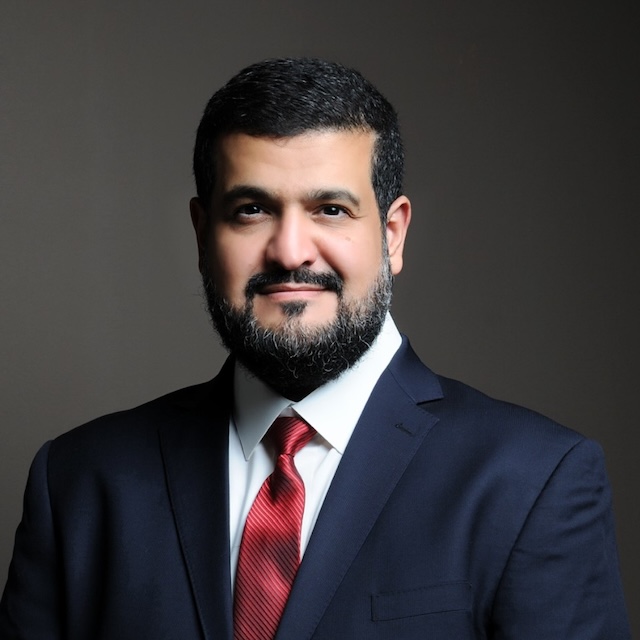Ali Alhomaidan: Shaping global biotech regulation
Dr Ali Alhomaidan’s work is ensuring that biotechnology reaches the people who need it the most. As the Executive Director for Product Evaluation and Standards Setting at the Saudi Food and Drug Authority (SFDA), Ali plays a key role in shaping global regulatory policies, improving accessibility to life-saving treatments, and fostering local biotech manufacturing.
Ali has been with the SFDA for 21 years, starting as a pharmacist before pursuing a Master of Biotechnology at The University of Queensland in 2007, followed by a doctorate in 2012. His transition from academia to regulation was driven by a keen interest in how science, policy and ethics intersect. “I was fascinated by how regulations and even religious perspectives influence biotech research,” he says.
His PhD focused on embryonic stem cell research and how regulatory landscapes differ globally. This work later led him to publish a book in 2017 on the impact of religion, ethics and regulation on stem cell research.
Now, as a leader in biotech regulation, Ali’s responsibilities extend beyond Saudi Arabia. He is the vice chair of the International Pharmaceutical Regulators Program (IPRP), where he works with global agencies — including the US FDA’s Centre for Drug Evaluation and Research (CDER) — to improve accessibility to biosimilars and biologics worldwide. “For too long, over-regulation has slowed the adoption of biosimilars,” he explains. “We’re focused on striking the right balance – protecting patients while ensuring life-saving products remain accessible.”
Driving impact through innovation and accessibility
Ali has overseen the licensing of over 2,000 biological and innovative products, including vaccines and insulin, and has played a key role in local manufacturing initiatives.
“We’ve secured agreements with global companies like GlaxoSmithKline to localise manufacturing in Saudi Arabia. Building self-sufficiency in biotech is critical for our region.”
His impact extends to shaping international regulatory frameworks. “One of the biggest challenges in biotech is balancing innovation with accessibility. The more regulations you impose, the higher the cost of drugs, which limits access,” he explains.
“Sometimes progress means not just creating new policies, but eliminating outdated ones.”
A significant part of his work involves reducing unnecessary regulatory barriers. “For example, we’ve challenged the need for clinical endpoint studies for biosimilars, as they add cost without real benefit. If we can eliminate redundant requirements, we can make treatments more affordable and available.”
The future of biotech: CRISPR, AI and gene therapy
Ali believes one of the most transformative biotech advancements in recent history is CRISPR/Cas9 gene-editing technology. “I remember struggling for months during my Master’s to figure out how to transcribe an insulin gene. Now, with CRISPR, you can do it overnight. It’s revolutionising genetic engineering.”
Looking ahead, he sees AI-powered drug design as a game-changer.
“AI will drastically improve how we identify drug targets, understand mechanisms, and design treatments. The process of drug discovery will be faster, more efficient and more precise.”
Another area of promise is mRNA vaccine technology, particularly in cancer treatment. “We’re on the verge of personalized cancer vaccines, and that’s incredibly exciting.”
However, with innovation comes regulatory challenges. “Our role is to ensure that these technologies are integrated into healthcare responsibly. It’s an exciting but complex space to navigate.”
Remembering UQ and the power of community
Ali’s time at UQ left a lasting impression. “The faculty and my colleagues were fantastic. I loved my time in the lab and the library, but most of all, I loved the people.”
One of his fondest memories is his routine of heading to Merlo Café every Friday. “I’d finish my lab work, grab a coffee and banana bread—always toasted, with butter—and just enjoy the campus environment.”
His experiences at UQ also reinforced the importance of mentorship. “Ross Barnard and Steve Reid were incredibly supportive. Ross even brought a homemade bottle of red wine to my graduation, though I don’t drink – so he enjoyed my share too!”
Advice for future biotech leaders
Ali’s advice to students is clear: build a strong scientific foundation but don’t stop there. “Stay curious and keep learning. Science is evolving every day.”
He emphasises the importance of practical experience. “Don’t just focus on your studies – get involved in real-world projects and work with companies developing biotech products.”
Computational skills are also becoming increasingly essential. “Back in my day, we used SAS and SPSS for data analysis. Now, it’s all about R and Python. Biotech professionals need to be comfortable with data science.”
Networking, he says, is another key factor in career growth. “Start building your professional network early – but don’t just network for the sake of it. Be useful and add value to the people you connect with.”
Finally, Ali highlights resilience. “Biotech is full of challenges, whether in research, regulation, or commercialization. Be patient, be persistent, and keep pushing forward.”
From licensing life-saving drugs to influencing international regulations, Ali’s work continues to shape the future of global biotech. “At the end of the day, it’s about impact. Whether through policy, innovation, or mentoring the next generation, I want to leave behind a system that is better, more efficient, and more accessible for all.”


 Read more inspiring stories from UQ biotechnology alumni
Read more inspiring stories from UQ biotechnology alumni